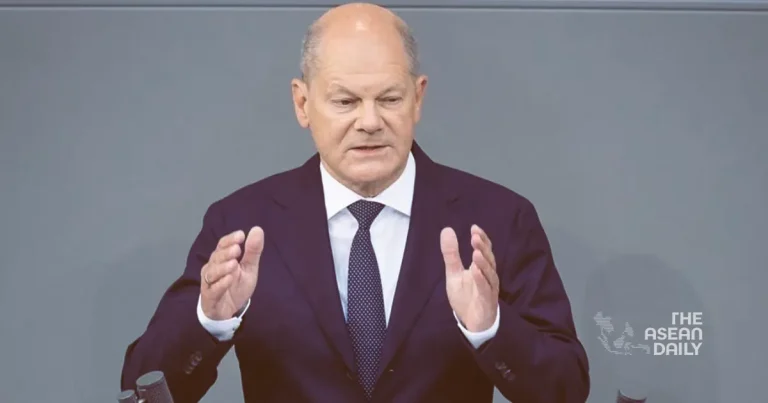8-11-2024 (BERLIN) Opposition leader Friedrich Merz has demanded an immediate parliamentary confidence vote following the dramatic collapse of Chancellor Olaf Scholz’s coalition government, setting the stage for potential early elections in Europe’s largest economy.
The Christian Democratic Union (CDU) chairman rejected Scholz’s proposed January timeline for a confidence vote, insisting the matter must be addressed “by next week at the latest”. This ultimatum comes in the wake of Wednesday’s dramatic dismissal of Finance Minister Christian Lindner, leader of the Free Democrats (FDP).
“The traffic light coalition’s demise marks the end of this mandate,” Merz declared, employing the widely-used nickname for the three-party alliance. Should his accelerated timetable be accepted, Germany could face elections as early as late January, following a mandatory 21-day dissolution period overseen by President Frank-Walter Steinmeier.
The political upheaval coincides with mounting challenges for Europe’s industrial powerhouse, including sluggish economic growth and manufacturing sector difficulties. Alexander Dobrindt, parliamentary leader of the CDU’s Bavarian sister party, warned that Germany “cannot afford to be in a chancellor coma” during these critical times.
Foreign Minister Annalena Baerbock of the Greens defended Scholz’s more measured approach, emphasising the need for “an orderly transition” during uncertain global times. Her stance reflects growing concerns about maintaining stability as Germany grapples with its role as Europe’s economic anchor.
The political crisis has sparked concerns about potential gains for populist forces, with the far-right Alternative für Deutschland currently polling at 17%, marginally ahead of Scholz’s Social Democrats. The emergence of the new Sahra Wagenknecht Alliance, polling at 8%, further complicates the political landscape.
Market analysts suggest the uncertainty could impact Germany’s economic recovery, with coalition-building likely to prove challenging in an increasingly fragmented political environment. The situation is particularly delicate given Germany’s crucial role in supporting Ukraine and maintaining European unity amid shifting global alliances.




